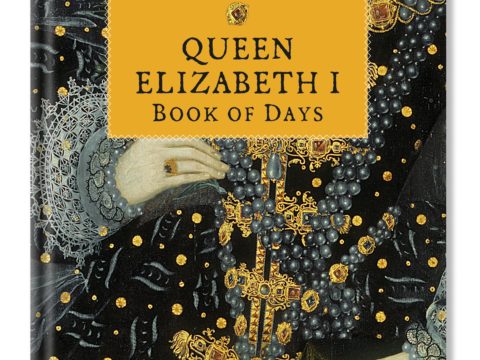James VI & I: Life Story
Chapter 10 : The Armada
James’s reluctance to become too closely allied with Spain proved the wiser course. With Mary dead, Philip was far more interested in conquering England to make it one of the dominions of his own family, specifically to see his daughter the Infanta Isabella Clara Eugenia crowned, rather than Protestant James. It was perfectly apparent to James, and all of his subjects, that if Spain were to conquer England, Scotland wouldn’t be far behind. In the view of some of James’s Catholic nobles, such as Huntly, Crawford and Montrose, this was not necessarily a bad thing. Whilst they did not want a Spanish monarch, they did wish to see James convert to the old faith.
James was fond of Huntly and was also willing to encourage a certain level of Catholicism to act as a counterbalance to England. James himself, although firmly Protestant, and indeed a denouncer of ‘Papism’, was not of a mind to persecute others for their religion. Indeed, he was so confident of his own religious beliefs that he challenged Huntly’s Jesuit uncle to a public debate in which even the Spanish ambassador had to admit he showed himself as master of his subject. A certain discreet encouragement of Catholics would also stand him in good stead with those Englishmen (and they were legion, although declining in numbers) who hankered after the old ways.
When he was finally put to the test in the summer of 1588, James confirmed his alliance with England and offered no aid to Spain either through helping any of the ships of the Armada that were wrecked on his coasts or by causing disturbances in the borders. Elizabeth does not appear to have been particularly grateful for his abstinence and despite promises, he received little material reward.
Whilst the King might have refrained from any support for Spain, he was put in an embarrassing position when the English government produced letters, apparently written from the Earl of Huntly and others, to Philip, bemoaning the failure of the ‘ Enterprise of England’ and suggesting that the Duke of Parma should land 6000 troops in order to begin a joint invasion of England.
With little choice but to take some action, James had Huntly arrested and imprisoned in Edinburgh Castle. The imprisonment was hardly severe, as James dined with the Earl, but took the opportunity to reprove him for his actions, having believed that Huntly’s signing of the King’s Confession (see above) a few months before had shown evidence of the genuine conversion. Huntly was released but then rearrested when Chancellor Maitland threatened to resign. The Earl was sent to his northern estates, but James was unable to condemn him wholeheartedly.
Before long it seemed that this leniency might have been a dire error. Huntly, together with the Earls of Bothwell, Errol and Crawford, who all had a grievance over the influence of Maitland, advanced on Edinburgh, apparently with the resolve of subjecting James to abduction yet again. Warned of the attempt, James took refuge in Maitland’s house, and the Earls found themselves foiled. Even James felt that his former friend had gone too far, and he raised an army which marched swiftly on Aberdeen, the seat of Huntly’s power.
Declining to fight, Huntly’s men evaporated and the Earl, promised clemency, gave himself up as did his confederates, Crawford and Bothwell. The Earls were convicted of treason but following a short, and not unduly rigorous, confinement, were released, much to the disgust of the Kirk and Queen Elizabeth, who had both hoped to see Catholic influence in Scotland crushed.
James VI & I
Family Tree



